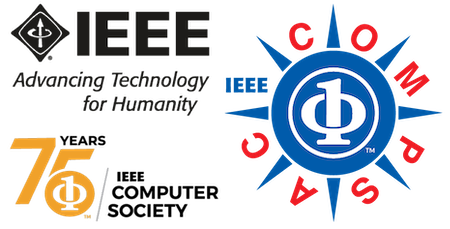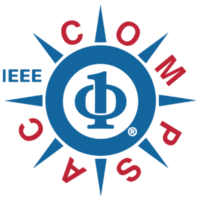The 2nd IEEE International Workshop on Advanced IoT Computing (AIOT 2021)
Call for Papers
The goal of this workshop is to share and discuss the most advanced researches and development studies in the area of “IoT Computing” among researchers, engineers and practitioners from academia and industry, focusing on new technical proposals and practical experiences with widely sharing the research issues that we must solve in this research domain. The workshop will provide an excellent opportunity to address the research issues and solutions in sufficient depth and breadth, and is intended to share knowledge and exchange ideas and/or actual field experiences, thereby promoting new studies and research topics in this area.
IoT has entered a new age. Not only collecting data from sensors, but also processing the collected data in a variety of contexts on sustainable IoT systems are getting more and more important these days. Sometimes, the data contains privacy or confidential information, which cannot be exported to Cloud, or sometimes it is better to process the data at the edge devices because of temporal network failure, or to improve service latency or traffic amount.
IoT has entered a new age. Not only collecting data from sensors, but also processing the collected data in a variety of contexts on sustainable IoT systems are getting more and more important these days. Sometimes, sensor data or system management data contain privacy or confidential information, which cannot be exported to Cloud. In some cases, it is also better to process the data locally because of temporal network failure, or to improve service latency or traffic amount. This workshop will talk about the solutions of these issues encountered in real IoT deployments.
The workshop topics include, but are not limited to:
* IoT Edge Computing
– Beyond 5G
– Intelligent Transport Systems
– Computer Vision for Sensing
– Federated Learning
* IoT Sustainability and Security
– Malware Intrusion Detection
– Incident Response System
– Network Measurement
– Vulnerability Management
– Personal Data and Privacy Management
Important Dates
Workshop papers due: 21 April 2021
Workshop paper notifications: 15 May 2021
Camera-ready and registration due: 31 May 2021
Authors are invited to submit original, unpublished research work, as well as industrial practice reports. Simultaneous submission to other publication venues is not permitted. In accordance with IEEE policy, submitted manuscripts will be checked for plagiarism. Instances of alleged misconduct will be handled according to the IEEE Publication Services and Product Board Operations Manual.
Please note that in order to ensure the fairness of the review process, COMPSAC follows the double-blind review procedure. Therefore we kindly ask authors to remove their names, affiliations and contacts from the header of their papers in the review version. Please also redact all references to authors’ names, affiliations or prior works from the paper when submitting papers for review. Once accepted, authors can then include their names, affiliations and contacts in the camera-ready revision of the paper, and put the references to their prior works back.
Formatting
Workshop papers are limited to 6 pages. Page limits are inclusive of tables, figures, appendices, and references. Workshop papers can add an additional 2 pages with additional page charges ($250USD/page).
Paper Templates
IEEE Paper templates are available in MS Word 2003 and LaTex. All submissions must use US 8.5×11 letter page format.
Note: If the submission link does not appear on EasyChair after logging-in, please click the above button again.
Workshop Organizers
Hideya OCHIAI, The Univ. of Tokyo, Japan
E-mail: ochiai@elab.ic.i.u-tokyo.ac.jp
Susumu TAKEUCHI, NTT, Japan
E-mail: takeuchi.susumu@lab.ntt.co.jp
Program Committee
Chandreyee Chowdhury (Jadavpur University, Kolkata, India)
Chian C. Ho (National Yunlin University of Science & Technology, Taiwan)
Kazuyuki Shudo (Tokyo Institute of Techinology, Japan)
Masayuki Hirafuji (The University of Tokyo, Japan)
Matsuura Satoshi (Tokyo Institute of Techinology, Japan)
Michiharu Takemoto (NTT, Japan)
Mie Mie Su Thwin (University of Computer Studies Yangon, Myanmar)
Ryohei Banno (Tokyo Institute of Techinology, Japan)
Sarbani Roy (Jadavpur University, Kolkata, India)
Tomoki Yoshihisa (Osaka University, Japan)
Xun Shao (Kitami Institute of Technology, Japan)
Yuuichi Teranishi (NICT / Osaka University, Japan)

